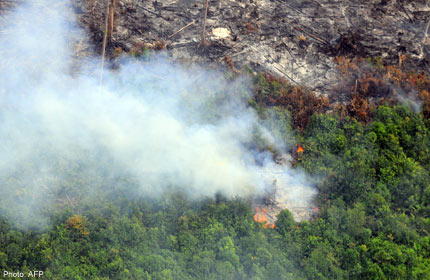
SINGAPORE - The legal issues shrouding the annual haze problem we are facing in Singapore are complex, but more can certainly be done on the Singapore side.
On the one hand, there are tricky international law issues between Singapore and Indonesia - independent sovereign states with distinct legal regimes - set against a backdrop of multi-layered sociopolitical forces which animate the Asean regional grouping.
On the other hand, the essence of the dispute lies in the irresponsible actions of one group of people in one country causing harm to a much larger group of people in a neighbouring territory. Open burning causes air pollution which is harmful to the environment and public health.
In Singapore, a clear statutory prohibition against the open burning of refuse or waste can be found in Section 6A of the Environmental Public Health (Public Cleansing) Regulations.
Other criminal and civil sanctions may also be levied against the parties responsible for such air pollution where the air pollution generated causes personal injury, property damage or a nuisance to others.
A similar spectrum of Indonesian legal remedies may be triggered where both the polluter and the injured party are located within Indonesia.
If both countries have environmental laws which can be invoked to punish those who engage in open-burning activities, why is the problem intractable once the air pollution crosses national boundaries and inflicts harm upon victims in another territory?
The immediate obstacle is whether the legal system of the country whose residents bear the brunt of the ill effects of the pollution can be used against the perpetrators. In other words, whether the Singapore courts and other organs of state have jurisdiction over those who engage in harmful activities outside of Singapore.

As a general rule, principles of national and territorial sovereignty preclude states from applying their laws to parties and conduct beyond national borders.
Exceptions are made where, for example, there is some important public policy consideration at stake, or where the foreign conduct produces a direct adverse impact on the affected state.
Extraterritorial jurisdiction would thus be justified on the basis that serious harm is suffered by a state, such that it has a legitimate interest in extending the scope of its laws beyond its territorial limits.
Singapore is no stranger to enacting laws which have an extraterritorial reach. These include statutes directed at prohibiting overseas drug consumption by Singaporeans and curbing corrupt acts of Singaporeans overseas.
Our laws also prohibit foreign economic undertakings from engaging in anti-competitive behaviour outside of Singapore that adversely affects competition within Singapore. Why not extend the scope of our environmental laws to cover those responsible for engaging in pollutive open-burning activities in Indonesia?
The economic and social impact of the haze on public health, tourism and a broad range of other economic activities provide more than ample justification for Singapore to assert such extraterritorial jurisdiction.
To be sure, extraterritorial laws are not easy to draft or enforce. But in principle, it is possible for Singapore judgments to be awarded against foreign entities, to be enforced outside Singapore by foreign courts.
Difficulties of enforcement are not insurmountable.
Difficulties in identifying which parties should be held legally accountable - landowners, plantation operators, parent companies and subsidiaries, downstream economic operators and so forth - can be dealt with by legislation which expands the circle of liability beyond those who actually light the fires to include parties who profit from such activities while knowing of or acquiescing to such land-clearing practices.
Difficulties relating to proving which fires in Sumatra contributed to the haze in Singapore would require drafting laws which allow the prosecuting agency to establish causation by proving certain basic facts.
For example, an evidential presumption could be raised if the prosecutor could show that open burning on a certain scale took place on a particular date when haze was felt in Singapore, with prevailing winds blowing towards Singapore on that date.
As for difficulties in imposing and enforcing financial penalties, these may be overcome by targeting the Singapore bank accounts of the corporations and corporate officers found jointly liable of such misconduct.
Jail terms could enhance the deterrent effect.
It would be ironic if those whose selfish decisions harmed Singapore's people and economy were to enjoy the financial rewards of their conduct by using our banking and other services.
Merely applying "commercial pressure" to discourage such behaviour is not enough. We must give serious thought to strengthening our environmental law regime to fight this annual scourge.
stopinion@sph.com.sg
The writer is Associate Professor, Faculty of Law at the National University of Singapore and the Deputy Director- designate of the Asia-Pacific Centre for Environmental Law.


